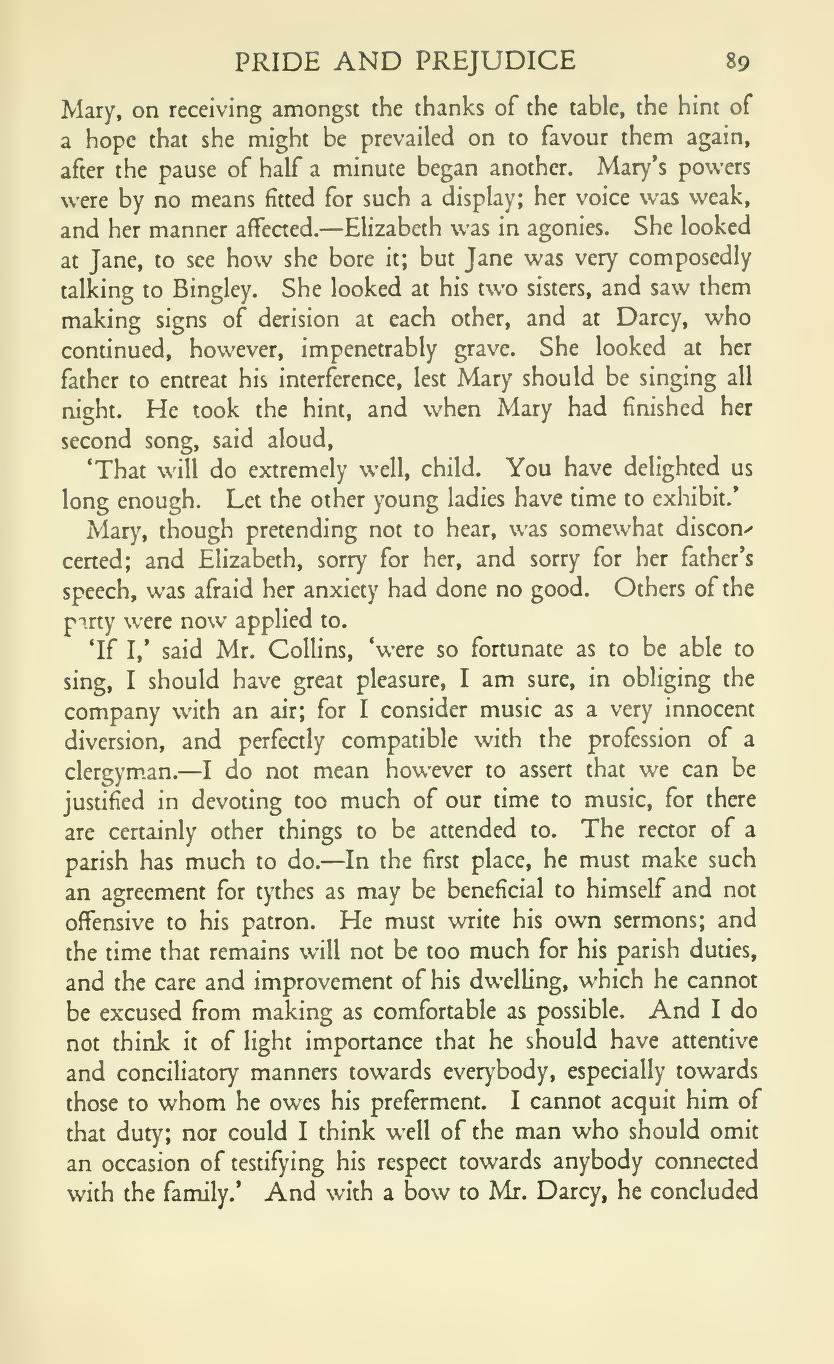 ............prev.....................next
............prev.....................next{{prxprp089.jpg}} || PRIDE AND PREJUDICE 89 ||
Mary, on receiving amongst the thanks of the table, the hint of
a hope that she might be prevailed on to favour them again,
after the pause of half a minute began another. Mary's powers
were by no means fitted for such a display; her voice was weak,
and her manner affected. -- Elizabeth was in agonies. She looked
at Jane, to see how she bore it; but Jane was very composedly
talking to Bingley. She looked at his two sisters, and saw them
making signs of derision at each other, and at Darcy, who
continued, however, impenetrably grave. She looked at her
father to entreat his interference, lest Mary should be singing all
night. He took the hint, and when Mary had finished her
second song, said aloud,
'That will do extremely well, child. You have delighted us
long enough. Let the other young ladies have time to exhibit.'
Mary, though pretending not to hear, was somewhat discon^
certed; and Elizabeth, sorry for her, and sorry for her father's
speech, was afraid her anxiety had done no good. Others of the
pirty were now applied to.
'If I,' said Mr. Collins, 'were so fortunate as to be able to
sing, I should have great pleasure, I am sure, in obliging the
company with an air; for I consider music as a very innocent
diversion, and perfectly compatible with the profession of a
clergyman. -- I do not mean however to assert that we can be
justified in devoting too much of our time to music, for there
are certainly other things to be attended to. The rector of a
parish has much to do. -- In the first place, he must make such
an agreement for tythes as may be beneficial to himself and not
offensive to his patron. He must write his own sermons; and
the time that remains will not be too much for his parish duties,
and the care and improvement of his dwelling, which he cannot
be excused from making as comfortable as possible. And I do
not think it of light importance that he should have attentive
and conciliatory manners towards everybody, especially towards
those to whom he owes his preferment. I cannot acquit him of
that duty; nor could I think well of the man who should omit
an occasion of testifying his respect towards anybody connected
with the family.' And with a bow to Mr. Darcy, he concluded
[[089]]